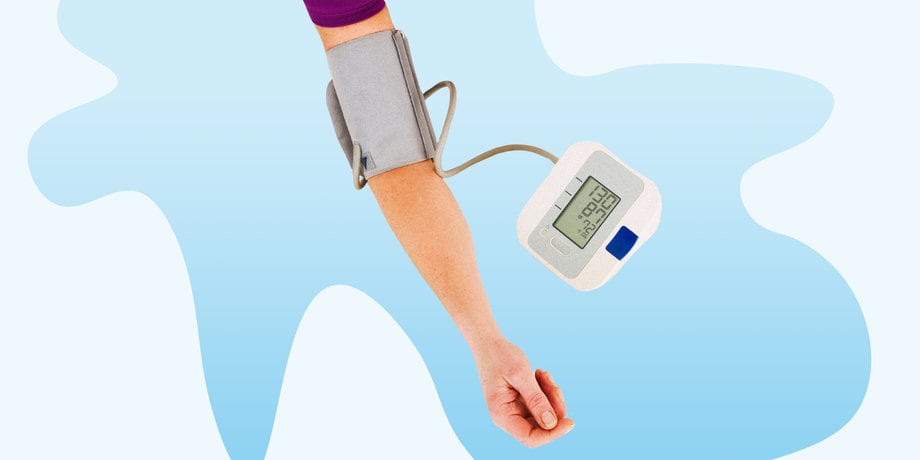Why Hypertension Should Be Monitored Regularly?

Hypertension, or high blood pressure, is a prevalent and potentially life-threatening condition that affects a significant portion of the global population. It is characterized by sustained elevated blood pressure levels, which can lead to serious health complications such as heart disease, stroke, and kidney damage.
Regular monitoring of hypertension is essential for several reasons. Firstly, understanding the risks associated with hypertension is crucial for individuals and healthcare providers alike, as it allows for early detection and effective management of the condition.
Secondly, regular monitoring enables the assessment of treatment efficacy and the adjustment of interventions as needed. Additionally, monitoring facilitates the identification of lifestyle factors that contribute to hypertension, promoting prevention and the adoption of healthier behaviors.
This article explores the importance of regular hypertension monitoring, highlighting the benefits it offers in terms of long-term health outcomes and the provision of support and resources for individuals living with the condition.
Key Takeaways
- Regular monitoring of hypertension is important for early detection and treatment, reducing the risk of serious complications such as heart disease, stroke, and kidney damage.
- Public outreach programs and education play a crucial role in raising awareness about hypertension, its risk factors, symptoms, and complications, empowering individuals to manage their condition.
- Support groups, healthcare professionals, and community outreach programs provide valuable support and resources for individuals managing hypertension, helping them to better understand the condition and improve their overall health.
- Lifestyle factors such as maintaining a healthy diet, engaging in regular physical activity, managing stress, and avoiding tobacco and alcohol are essential in the management of hypertension, and regular monitoring ensures optimal long-term health outcomes.
Understand the Risks of Hypertension
Understanding the risks associated with hypertension is crucial in order to emphasize the importance of regular monitoring.
Hypertension, or high blood pressure, is a chronic condition that affects a significant portion of the global population. Risks assessment plays a vital role in managing this condition.
Hypertension is a major risk factor for cardiovascular diseases, such as heart attacks and strokes, as well as kidney disease. It can also lead to the development of other comorbidities, including diabetes and metabolic syndrome.
Moreover, uncontrolled hypertension can have a significant impact on the quality of life of individuals, causing symptoms such as headaches, fatigue, and dizziness.
By monitoring blood pressure regularly, healthcare professionals can assess the risks associated with hypertension and tailor appropriate interventions to prevent or manage its complications effectively. Regular monitoring is essential for early detection, treatment optimization, and overall management of hypertension.
Early Detection for Effective Management
Regular blood pressure monitoring is of utmost importance in the early detection and effective management of hypertension. By monitoring blood pressure regularly, healthcare professionals can detect any changes or fluctuations in blood pressure levels, allowing for timely intervention and treatment.
Additionally, regular monitoring can also help in identifying potential health complications associated with hypertension, such as heart disease, stroke, and kidney problems, enabling healthcare providers to take appropriate preventive measures.
Importance of Regular Blood Pressure Monitoring
Monitoring blood pressure on a regular basis is crucial in order to accurately assess and manage hypertension. Regular blood pressure monitoring allows for the early detection of any changes in blood pressure levels, providing healthcare professionals with valuable information to guide treatment decisions.
By consistently monitoring blood pressure, individuals can better understand their condition and take necessary steps to control it.
Regular blood pressure monitoring is particularly important for blood pressure control. It allows healthcare professionals to evaluate the effectiveness of prescribed medications and make necessary adjustments to optimize treatment outcomes. Additionally, regular monitoring enables individuals to identify the impact of lifestyle modifications, such as diet and exercise, on their blood pressure levels. This feedback can motivate individuals to make necessary lifestyle changes to improve blood pressure control.
In summary, regular blood pressure monitoring plays a crucial role in the effective management of hypertension. It provides valuable insights into blood pressure control and the impact of lifestyle modifications, ultimately guiding treatment decisions and empowering individuals to take control of their health.
Identifying Potential Health Complications
Identifying potential health complications associated with blood pressure fluctuations is essential for comprehensive healthcare management. Hypertension, or high blood pressure, is a chronic condition that can lead to numerous health risks if left unmanaged. Regular monitoring allows healthcare professionals to assess the effectiveness of treatment and identify any potential complications that may arise.
One potential complication is heart disease, as high blood pressure can damage the arteries and increase the risk of heart attacks and strokes. Additionally, hypertension can also lead to kidney problems, as the kidneys play a crucial role in regulating blood pressure. Other potential complications include vision loss, cognitive decline, and an increased risk of developing diabetes.
By monitoring blood pressure regularly, healthcare providers can intervene early and implement appropriate measures to prevent or minimize these potential complications, improving overall patient outcomes.
Prevention and Lifestyle Changes
Prevention and lifestyle changes play a crucial role in the effective management of hypertension. Implementing prevention strategies and adopting healthy habits can significantly reduce the risk of developing complications associated with high blood pressure.
Regular physical activity, such as aerobic exercise, has been shown to lower blood pressure levels. Incorporating a balanced diet that is low in sodium and rich in fruits, vegetables, whole grains, and lean proteins is also beneficial in managing hypertension.
Additionally, limiting alcohol consumption and avoiding tobacco use are important lifestyle changes that can contribute to blood pressure control. Stress management techniques, such as meditation or relaxation exercises, can further assist in maintaining healthy blood pressure levels.
By adhering to these prevention strategies and adopting a healthy lifestyle, individuals can effectively manage their hypertension and minimize the risk of potential health complications.
Medication Management
The effective management of hypertension includes medication management as a key component, as it aids in controlling blood pressure levels and reducing the risk of complications.
Medication adherence is crucial in ensuring the desired therapeutic effects are achieved. Regular monitoring of blood pressure allows healthcare professionals to assess the effectiveness of the prescribed medications and make necessary dosage adjustments. Adherence to medication regimens can be challenging for some patients, leading to suboptimal blood pressure control. Therefore, it is essential for healthcare providers to educate patients on the importance of medication adherence and provide support to overcome any barriers.
Additionally, dosage adjustments may be required over time based on the individual’s response to the medication and changes in their overall health status. Regular monitoring and evaluation are essential to ensure that the prescribed medication remains effective in managing hypertension and reducing the risk of associated complications.
Monitoring Progress and Adjusting Treatment
Monitoring progress and adjusting treatment involves regularly evaluating the effectiveness of prescribed medications and making necessary modifications based on individual response and changes in overall health status. It is important to regularly monitor hypertension to ensure that the treatment is working effectively and to identify any potential complications.
Here are three key reasons why monitoring hypertension regularly is crucial:
- Adjusting medication: Regular monitoring allows healthcare providers to assess how well the prescribed medications are controlling blood pressure. If medications are not effectively lowering blood pressure, adjustments can be made to the dosage or type of medication.
- Lifestyle modifications: Regular monitoring provides an opportunity to evaluate the effectiveness of lifestyle modifications, such as dietary changes, exercise, and stress management. Adjustments can be made to these lifestyle factors based on the progress and response to treatment.
- Early detection of complications: Regular monitoring helps identify any potential complications or side effects of medication. This allows healthcare providers to intervene early and make necessary adjustments to prevent further health issues.
By monitoring progress and adjusting treatment, healthcare professionals can optimize the management of hypertension and improve overall health outcomes.
Education and Awareness
Education and awareness play a vital role in equipping individuals with the knowledge and understanding needed to make informed choices regarding their health. When it comes to hypertension, public outreach programs that focus on education and awareness can help individuals understand the importance of regular monitoring.
These programs can provide information about the risk factors, symptoms, and complications associated with hypertension, as well as the benefits of early detection and treatment. By increasing public awareness, individuals are more likely to take preventive measures and seek medical attention when necessary.
Public outreach initiatives can also help dispel misconceptions and myths surrounding hypertension, promoting accurate information and encouraging individuals to adopt healthier lifestyles. Ultimately, education and awareness programs can empower individuals to take control of their health and effectively manage hypertension.
Support and Resources
Access to support and resources is crucial in ensuring individuals have the necessary tools and assistance to effectively manage their blood pressure and make positive lifestyle changes. Hypertension can be a chronic condition that requires ongoing monitoring and support. Here are some key support systems and resources that can help individuals with hypertension:
- Support groups: Joining a support group can provide a sense of community and encouragement, allowing individuals to share experiences and learn from others facing similar challenges.
- Healthcare professionals: Regular visits to healthcare professionals such as doctors, nurses, and dietitians can provide personalized guidance and monitoring of blood pressure levels.
- Educational materials: Access to informative materials, such as brochures or online resources, can help individuals gain a better understanding of hypertension and its management.
- Community outreach programs: Various organizations and initiatives offer community outreach programs that provide education, screening, and resources to individuals at risk of or living with hypertension.
By utilizing these support systems and resources, individuals can receive the necessary guidance and encouragement to effectively manage their blood pressure and improve their overall health.
Long-term Health Benefits
Support and resources play a crucial role in managing hypertension, but it is equally important to recognize the long-term health benefits associated with regular monitoring of this condition.
Hypertension, if left uncontrolled, can lead to serious complications and have detrimental effects on overall health. By monitoring blood pressure regularly, individuals can detect any abnormalities early on and take necessary steps to address them. This proactive approach can significantly reduce the risk of long-term consequences such as heart disease, stroke, kidney damage, and other related complications.
Additionally, regular monitoring allows healthcare professionals to assess the effectiveness of treatment plans and make necessary adjustments, including lifestyle modifications. These modifications may include adopting a healthy diet, engaging in physical activity, managing stress, and avoiding tobacco or excessive alcohol consumption.
Therefore, regular monitoring of hypertension is vital in ensuring optimal long-term health outcomes.
Frequently Asked Questions
What are the common symptoms of hypertension?
Common symptoms of hypertension include headaches, dizziness, blurred vision, chest pain, fatigue, and difficulty breathing. Causes of hypertension may include genetic factors, lifestyle choices, such as a high-salt diet, obesity, and lack of physical activity, and certain medical conditions.
Are there any alternative treatments or natural remedies for managing hypertension?
Alternative therapies and herbal remedies may be used as adjuncts to conventional treatments for managing hypertension. However, their effectiveness and safety should be validated through rigorous scientific studies before being recommended for routine use.
Can hypertension be completely cured with medication and lifestyle changes?
Hypertension management is crucial for controlling blood pressure and reducing the risk of long-term effects. While medication and lifestyle changes can help control hypertension, complete cure may not be possible in all cases.
What are the potential side effects of hypertension medications?
Potential complications of hypertension medications include dizziness, fatigue, increased urination, and sexual dysfunction. Long-term effects may include kidney damage, electrolyte imbalances, and an increased risk of cardiovascular events such as heart attacks and strokes.
Are there any specific dietary recommendations for individuals with hypertension?
Specific dietary recommendations and lifestyle modifications are recommended for individuals with hypertension. These recommendations include reducing sodium intake, increasing potassium intake, following the DASH diet, limiting alcohol consumption, and maintaining a healthy weight.








